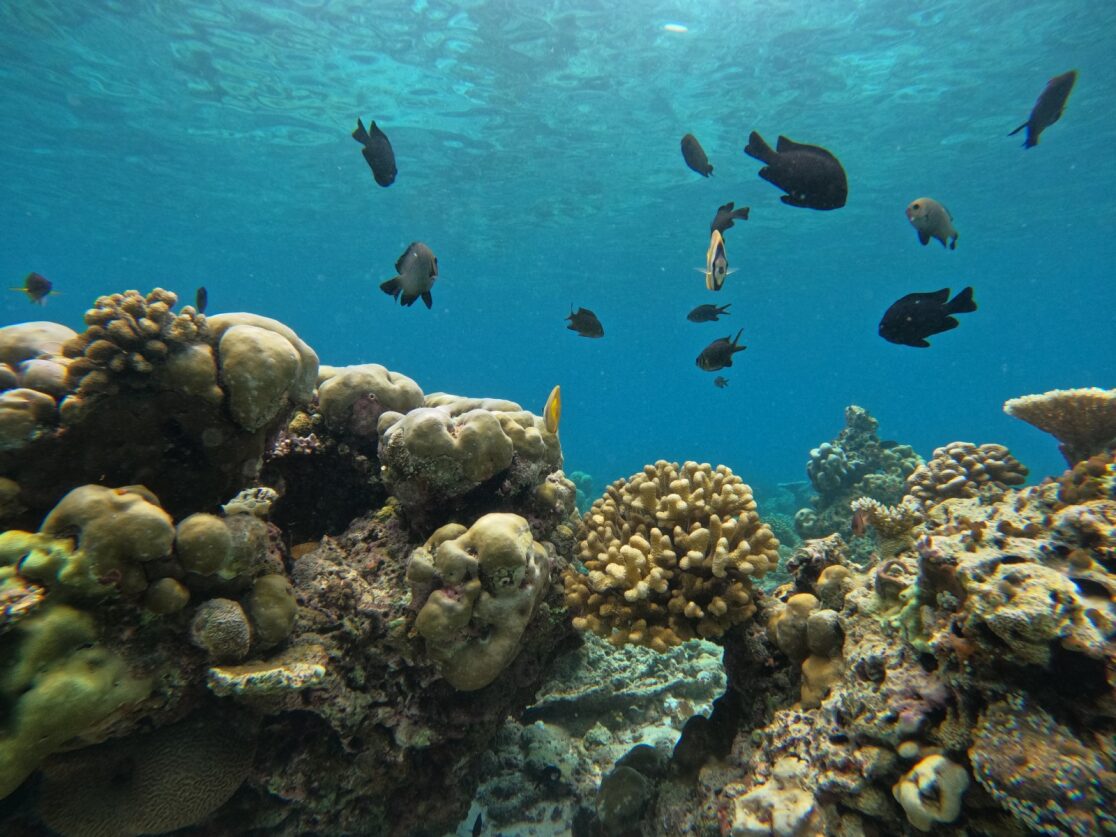Author: Daniel Tucker Bailey
In the early hours of the 11th of April, a group of students stood huddled in a bus shelter on Penryn Campus. Amidst the drowsiness, there was more than a hint of excitement when the coach arrived to whisk us up to Heathrow Airport – picking up others along the way – for our coral reef field course in the Maldives.
The next morning, we stumbled off a plane and into the sun on the island of Hulhulé. We were soon loading our bags and cases onto two boats, which carried us for three hours across an astounding seascape until we reached the island of Magoodhoo on Faafu Atoll: our home for the next ten days.
Prof. Callum Roberts and Dr. Julie Hawkins have been running the coral reef field course at the University of Exeter for four years. One of the principal aims of the course is to help students gain a greater understanding of coral reefs and their ecology. We began working on this almost as soon as we had arrived, with an introductory snorkel on a local reef. For many of us, this was a first encounter with a coral reef – and the experience did not disappoint. Coral reefs are amongst the most biodiverse ecosystems on the planet, covering a mere 0.1% of the ocean and yet supporting 25% of all shallow-water marine species. To be immediately surrounded by butterflyfish, damselfish, angelfish and triggerfish was a delight, whilst the corals themselves – from expansive Acropora tables to great, hulking Porites – proved just as wonderous as the creatures swimming between them.
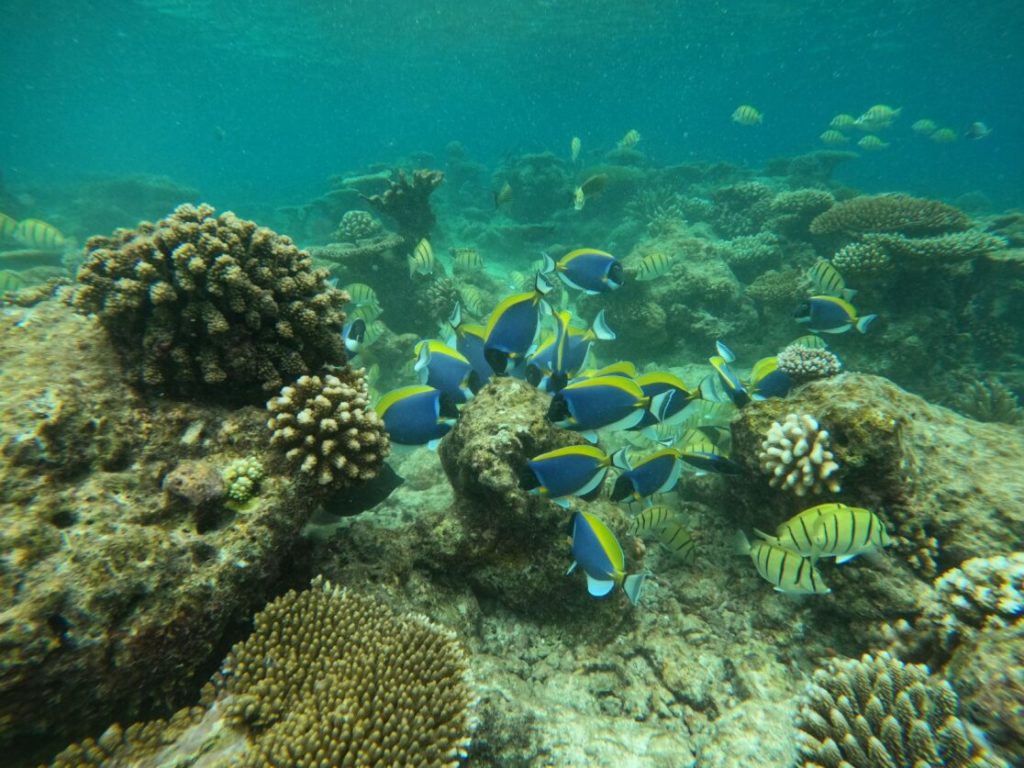
We were staying at the MaRHE Centre, an outpost of the University of Milano – Bicocca on F. Magoodhoo. Besides being endlessly kind and helpful, our hosts were always on hand to provide fish and coral identification advice – and they kept us well-fuelled for our snorkels and dives with a steady supply of dhal curry.
A typical day on the coral reef field course started with breakfast at half-past-seven, although many of us chose to wake up earlier for sensational sunrise snorkels on the lagoon. The first part of the morning was usually devoted to lectures, covering a wide range of topics – from coral ecology and biogeography to reef fisheries and the impacts of climate change. This would be followed by a practical briefing, with training on ecological survey methods and species identification.
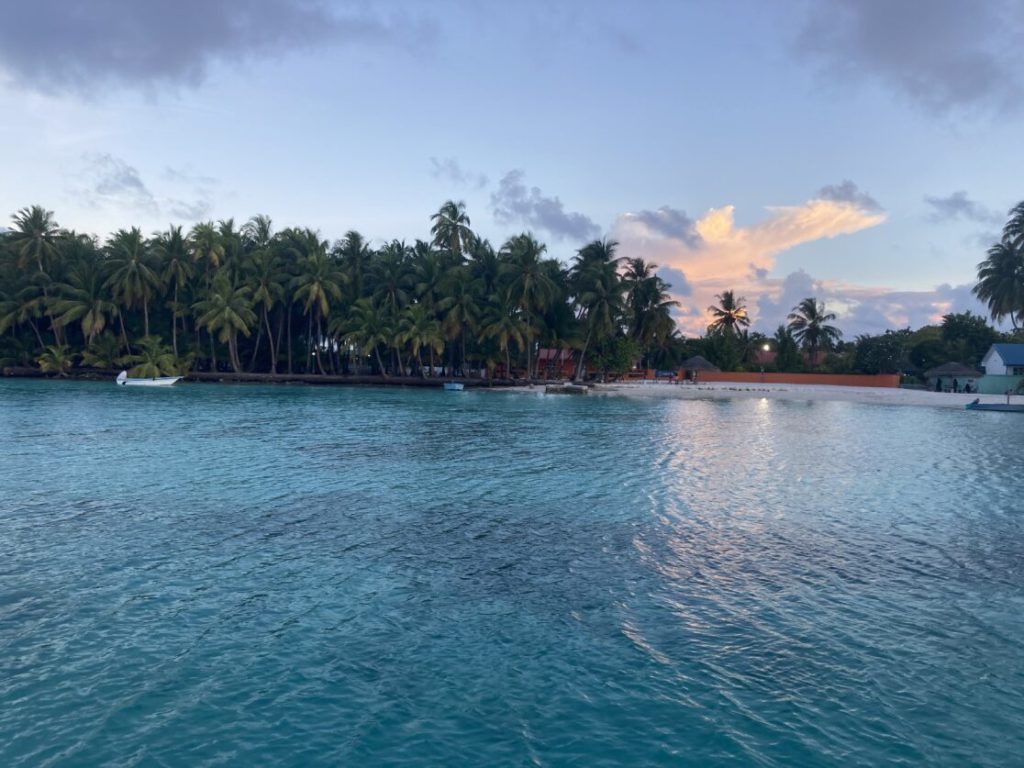
By mid-morning, we would be gearing up and boarding a boat for our first excursion of the day. Guided by the captain and the MaRHE team, we would be dropped off at one of the many marvellous reefs in the area – often equipped with transects and quadrats to put our newly-learned survey skills into practice. In buddy pairs, we would conduct our surveys – studying reef structure, coral cover and fish diversity – surrounded by truly astounding marine life, from coral and anemones to reef fish, sharks and rays. The surveys provided not just valuable hands-on experience, but a reason to slow down and take in the hidden details of the reef: the sea squirts clinging to the rocks, the crabs hiding between coral branches, the clams tucked away in crevices.
After lunch back at the centre, we usually repeated the ritual: a practical briefing, followed by a dive or snorkel off the boat. Alongside the surveys, one of our key tasks was to familiarise ourselves with certain key coral and fish taxa – learning their common, family and Latin names in preparation for our exam. Once we’d returned to Magoodhoo and had dinner, revision often took up much of the evening. This was a communal activity, with all of us gathering around our textbooks in the centre’s courtyard, and was often punctuated by strolls to the harbour, where we frequently saw sharks scavenging for scraps from fishermen.
Unfortunately, this wasn’t the only evidence of human activity and impacts we found in the waters of the Atoll. Fishing lines and plastic waste could frequently be spotted amongst the coral or on the shore. Meanwhile, our trip coincided with the start of the 4th Global Coral Bleaching Event – and we could see its effects on the local reefs. Coral bleaching occurs when sea temperatures rise, stressing the coral and causing it to expel the symbiotic algae which provide most of their food. This turns the coral white and can lead to mass mortality from which reefs may take many years to recover. As climate change brings ever greater warming, the reefs of the Maldives and the world are under increasing threat – and, with them, the coastal communities who rely upon coral reefs for food and coastal defence. All of this serves to highlight the immense importance of scientific research on coral reefs and the marine environment more broadly – and of concerted efforts to address the great environmental challenges facing the Earth.
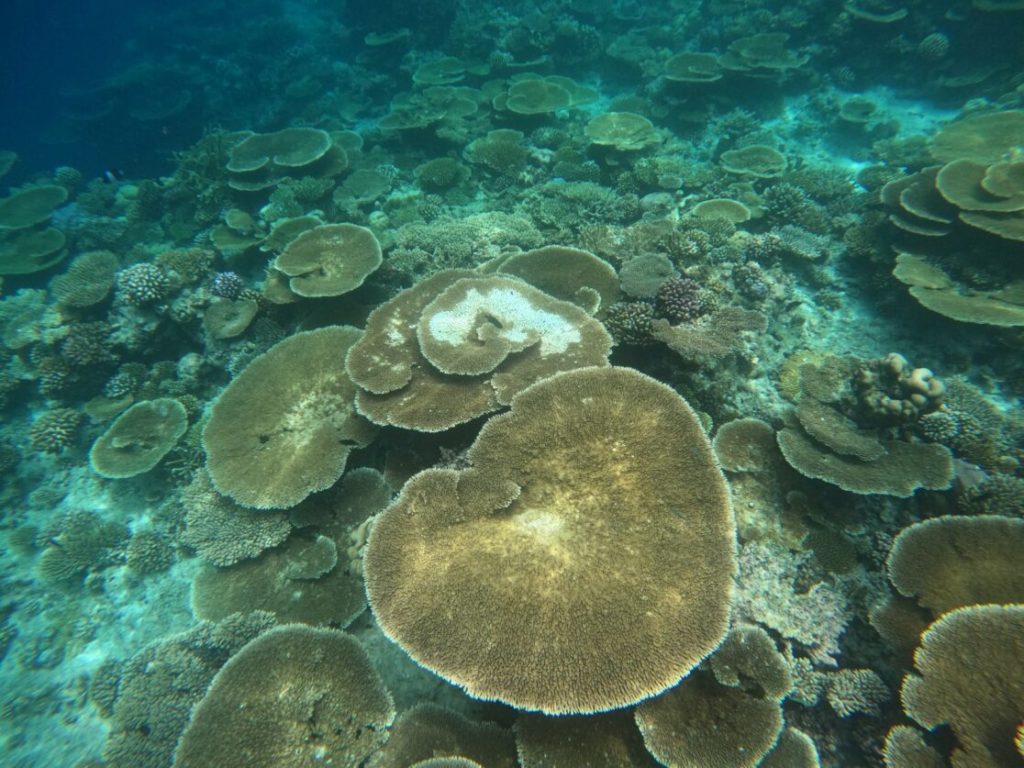
Thankfully, alongside these signs of trouble, we also had the chance to experience reefs at their most vibrant and dynamic. On one of our final days in the Maldives, we took a trip to an uninhabited island, enjoying the expansive reefs which lay just off its shore. We revelled in the rich ecosystem we found there, with damsels and butterflyfish flitting between the coral, parrotfish feeding on its polyps and an endless wall of jacks and fusiliers streaming past in the open water. A brief glimpse of a turtle, some way down near the seabed, brought rather a lot of excitement.
As we travelled back home on the 21st – save for a lucky few who stayed out to collect data for their research projects – we could all reflect on a magnificent trip, with a great deal learned and many natural wonders witnessed. We are all hugely grateful to Callum and Julie – as well as to Dr. Chris Mitchell and Rhiannon Davies, who came out to help and share their knowledge – and to the MaRHE team for the effort they put in to ensure we had the best possible Maldivian experience. As we look beyond our degrees, these memories will drive us to address the issues we saw on our trip and to ensure that coral reefs can be preserved for future generations – and future Exeter students – to enjoy as much as we did.
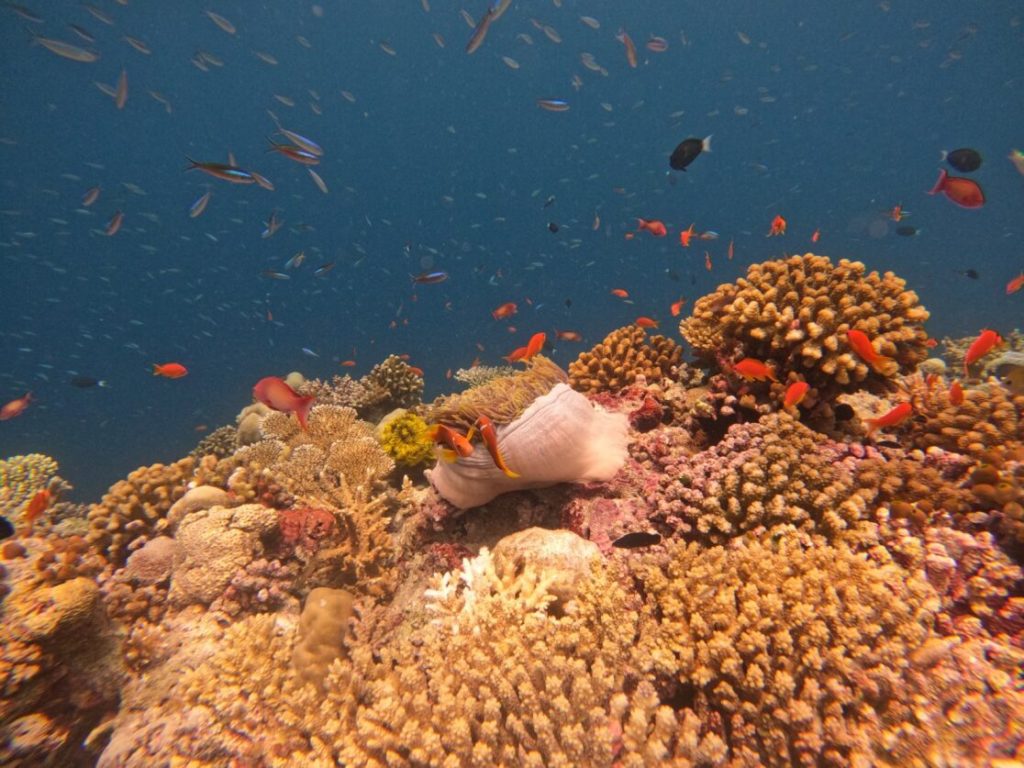
Explore the relationships between coastal and marine ecosystems and human activity in our MSc Marine Environmental Management at the University of Exeter, Cornwall.

